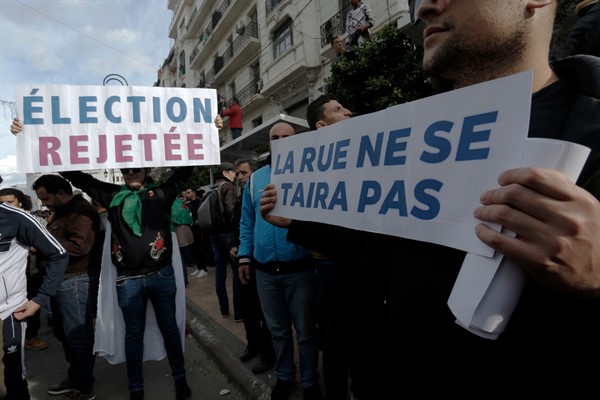Editor’s Note: This is the web version of our subscriber-only weekly newsletter, Middle East Memo, which takes a look at what’s happening, what’s being said and what’s on the horizon in the Middle East. Subscribe to receive it by email every Monday. If you’re already a subscriber, adjust your newsletter settings to receive it.
As “weapons of the weak” go, boycotts hold a special pedigree. Gandhi used them in India’s struggle for independence to leverage overwhelming popular will against the British colonizers’ military superiority. The Montgomery bus boycott, organized by Martin Luther King Jr. from 1955 to 1956, showed white supremacists in Alabama and across the U.S. that Black Americans could and would yield their economic power in pursuit of their civil rights. Like a general strike, a boycott can transform diffuse popular sentiment into a targeted beam powerful enough to force political change.
Election boycotts, however, are a different matter altogether. Activists in Iraq are calling for such a boycott of upcoming parliamentary elections in October because of an ongoing campaign of murder and intimidation against critics of the state. Dissidents also called for boycotts of last Friday’s presidential election in Iran and the June 12 parliamentary elections in Algeria; both of those contests featured historically low turnout.

